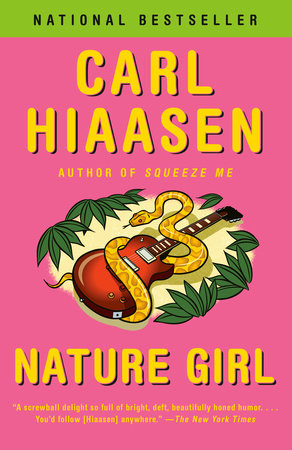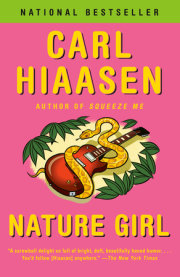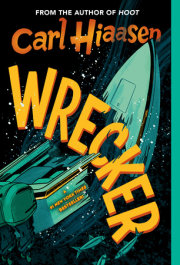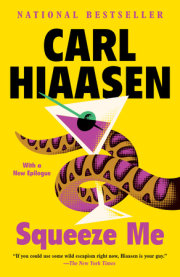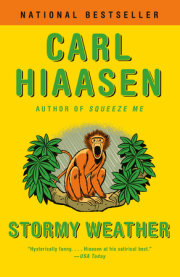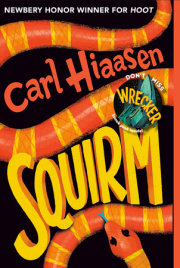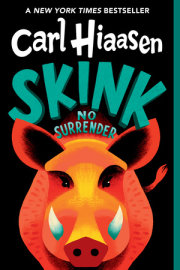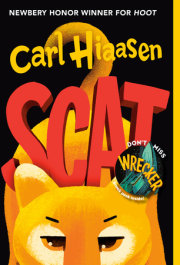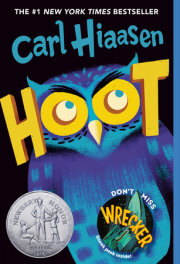OneOn the second day of January, windswept and bright, a half-blood Seminole named Sammy Tigertail dumped a dead body in the Lostmans River. The water temperature was fifty-nine degrees, too nippy for sharks or alligators.But maybe not for crabs, thought Sammy Tigertail.Watching the corpse sink, he pondered the foolishness of white men. This one had called himself Wilson when he arrived on the Big Cypress reservation, reeking of alcohol and demanding an airboat ride. He spoke of ringing in the New Year at the Hard Rock Hotel and Casino, which was owned by the Seminole tribe on eighty-six acres between Miami and Fort Lauderdale. Wilson told Sammy Tigertail that he’d been sorely disappointed not to find a single Indian at the casino, and that after a full night of drinking, hot babes and seven-card stud he’d driven all the way out to Big Cypress just to get himself photographed with a genuine Seminole.“Some dumbass bet me a hundred bucks I couldn’t find one,” Wilson said, slinging a flabby arm around Sammy Tigertail, “but here you are, brother. Hey, where can I buy one of them cardboard cameras?”Sammy Tigertail directed Wilson toward a convenience store. The man returned with a throwaway Kodak, a bag of beef jerky and a six-pack. Mercifully, the airboat engine was so loud that it drowned out most of Wilson’s life story. Sammy Tigertail heard enough to learn that the man was from the greater Milwaukee area, and that for a living he sold trolling motors to walleye fishermen.Ten minutes into the ride, Wilson’s cheeks turned pink from the chill and his bloodshot eyes started leaking and his shoulders hunched with the shakes. Sammy Tigertail stopped the airboat and offered him hot coffee from a thermos.“How ’b-b-bout that picture you promised?” Wilson asked.Sammy Tigertail patiently stood beside him as the man extended one arm, aiming the camera back at them. Sammy Tigertail was wearing a fleece zip-up from Patagonia, a woolen navy watch cap from L.L. Bean and heavy khakis from Eddie Bauer, none of which would be considered traditional Seminole garb. Wilson asked Sammy Tigertail if he had one of those brightly beaded jackets and maybe a pair of deerskin moccasins. The Indian said no.Wilson instructed him not to smile and snapped a couple of pictures. Afterward, Sammy Tigertail cranked up the airboat and set out to finish the swamp tour at the highest-possible speed. Because of the cold weather there was practically no wildlife to be observed, but Wilson didn’t seem to mind. He’d gotten what he came for. Squinting against the wind, he gnawed a stick of dried beef and sipped on a warm Heineken.Sammy Tigertail took a shortcut through a prairie of tall saw grass, which flattened under the airboat’s bow as neatly as wheat fields beneath a combine. Without warning, Wilson arose from his seat and dropped the beer bottle, spraying the deck. As Sammy Tigertail backed off the throttle, he saw Wilson begin to wobble and snatch at his own throat. Sammy Tigertail thought the man was gagging on a chunk of jerky, but in fact he was trying to remove from his doughy neck a small banded water snake that had sailed out of the parting reeds.The creature was harmless, but evidently Wilson was in no condition to be surprised by a flying reptile. He dropped stone-dead of a heart attack before his Seminole guide could get the boat stopped.The first thing that Sammy Tigertail did was lift the little snake off the lifeless tourist and release it into the marsh. Then he took Wilson’s left wrist and groped for a pulse. Sammy Tigertail felt obliged to unbutton the man’s shirt and pound on his marbled chest for several minutes. The Indian elected to forgo mouth-to-mouth contact, as there obviously was no point; Wilson was as cold to the touch as a bullfrog’s belly.In his pockets the Seminole found the disposable camera, $645 cash, a wallet, keys to a rented Chrysler, a cellular phone, two marijuana joints, three condoms and a business card from the Blue Dolphin Escort Service. Sammy Tigertail put back everything, including the cash. Then he took out his own cell phone and called his uncle Tommy, who advised him to remove the dead white man from the reservation as soon as possible.In the absence of more specific instructions, Sammy Tigertail wrongly assumed that his uncle meant for him to dispose permanently of Wilson, not merely transport him to a neutral location. Sammy Tigertail feared that he would be held responsible for the tourist’s death, and that the tribal authorities wouldn’t be able to protect him from the zeal of Collier County prosecutors, not one of whom was a Native American.So Sammy Tigertail ran the airboat back to the dock and carried Wilson’s body to the rental car. No one was there to witness the transfer, but any neutral observer—especially one downwind of Wilson’s boozy stink—would have concluded that he was a large sloppy drunk who’d passed out on the swamp tour.Having positioned the corpse upright in the backseat, Sammy Tigertail drove directly to Everglades City, in the heart of the Ten Thousand Islands. There he purchased four anchors and borrowed a crab boat and headed for a snook hole he knew on the Lostmans River.Now a single coppery bubble marked the spot where the dead man had sunk. Sammy Tigertail stared into the turbid brown water feeling gloomy and disgusted. It had been his first day working the airboat concession, and Wilson had been his first customer.His last, too.After returning the crab boat, he called his uncle Tommy to say he was going away for a while. He said he wasn’t spiritually equipped to deal with tourists.“Boy, you can’t hide from the white world,” his uncle told him. “I know because I tried.”“Do we own the Blue Dolphin Escort Service?” asked Sammy Tigertail.“Nothing would surprise me,” said his uncle. ...At about the same time, in a trailer not far from the fishing docks, a boy named Fry looked up from his dinner plate and asked, “What is this crap?”It was not an unreasonable question.“Salisbury steak,” Honey Santana said. “It tastes better than it looks.”“Did you get fired again?”“No, I quit,” Honey said. “Now hush up and eat.”As her son well knew, she resorted to frozen dinners only when she was out of work.“What happened this time?” he asked.“You remember Aunt Rachel’s Chihuahua? Yum-Yum Boy?”“The one that got killed, right? Trying to hump a raccoon.”“Yeah, well, that’s what Mr. Piejack is like,” Honey said, “only bigger.”She took a small bite of the tough gray meat. It was gruesome but she managed a smile.Fry shrugged. “So, did he make a move or what?”“You could say that.”Mr. Piejack was the owner of the fish market, and he’d been sniffing after Honey for months. He was married and had numerous other unsavory qualities.“You know those little wooden mallets we sell at the register?” Honey said.Fry nodded. “For cracking stone-crab claws.”“Right. That’s what I whacked him with.”“Where?”“Where do you think?”As Fry pushed away from the table, Honey hurried to explain.“He grabbed my breast. That’s why I did it.”Her son looked up. “For real? You’re not making this up?”“My right breast, I swear to God.” Honey solemnly entwined her hands over the object of Mr. Piejack’s lust.“What an a-hole,” Fry said.“Totally. After I hit him, he started rolling on the floor, moaning and whining, so I grabbed a slab of tuna out of the cooler and shoved it down his pants. You know, to keep the swelling down.”“What kind of tuna?”“Yellowfin,” Honey said. “Sushi-grade.”Fry grinned. “He’ll throw it back on the ice and sell it to some snowbird.”“That’s gross,” Honey said.“How much you wanna bet?”“Hey, I could fix us some soup.” She got up and scraped the Salisbury steaks into the garbage can. “Minestrone or cream of tomato?”“Whatever.” Fry scooted his chair back to the table. Sometimes he believed that his mother was on the verge of losing her mind, and sometimes he believed that she was the sanest person he’d ever met.“Now what, Mom?”“You know my friend Bonnie? She’s doing these ecotours where she takes tourists kayaking out to Cormorant Key,” Honey said. “She says it’s a ton of fun and the money’s pretty good, too. Anyway, driving home from Marco this afternoon I noticed a string of bright yellow kayaks crossing the bay, and I thought: What a heavenly way to spend the day, paddling in the sunshine through the mangroves!”“Kayaks,” Fry said skeptically. “Is this the same Bonnie with the solar-powered sewing machine?”“You sound like your ex-father.”“He’s not my ex-father, he’s your ex-husband. Anyway, what’d I say wrong?”“Oh, just the look on your face.” Honey took the soup pot off the stove. “What was I supposed to do, Fry? The man squeezed my boob. Did he deserve to be clobbered with a crab hammer in the testicles, or did he not?”“How much does a kayak cost?”Honey set two bowls on the table. “I’m not sure, but we’ll need at least two or three, for starters.”“And where would you take these goobers on your ‘ecotour’?” Fry asked. “I mean, since Bonnie’s already locked up Cormorant Key.”Honey laughed. “Have you looked out our window lately? Have you noticed all those gorgeous green islands?”The phone began to ring. Honey frowned.“Every night,” she said, “like clockwork.”“Then don’t answer it,” her son said.“No, I’ve had it with these clowns. Enough is enough.”More than a thousand miles away, a man named Boyd Shreave stirred a latte and listened on his wireless headset to a phone ringing somewhere distant, in the 239 area code. A photocopied script lay on the desktop in front of him, but Boyd Shreave no longer needed it. After three days he knew the pitch cold.Shreave was employed by Relentless, Inc., a telemarketing company that specialized in outbound sales calls to middle-income residential addresses in the United States. The firm’s call center was a converted B-52 hangar in Fort Worth, Texas, where Boyd Shreave and fifty-three other solicitors toiled in individual cubicles that were padded to dampen ambient noise.In the cubicle to the right of Boyd Shreave was a woman named Eugenie Fonda, who claimed a murky connection to the famous acting family and in any case had recently become Boyd Shreave’s mistress. To the left of Boyd Shreave sat a man named Sacco, who was cavern-eyed and unfriendly and rumored to be a dot-com burnout. During work hours, Boyd Shreave rarely spoke to any of his co-workers, including Eugenie, due to the onerous calling quotas imposed by Relentless, Inc. They were on the phones from 5:00 p.m. to midnight, strafing east to west through the time zones.It was a dreary and soulless job, though not the worst that Shreave had ever held. Still, at age thirty-five he realized that the feeble arc of his career had more or less flatlined during his six months in telemarketing. He probably would have quit were it not for six-foot-tall Eugenie, the ash-blond crest of whose head he could gaze upon at will in the adjoining carrel.Boyd Shreave had been in sales since the age of twenty-six: corrective footwear, farm equipment, automobiles (new and used), fertilizer, herbal baldness remedies, high-definition televisions and exotic pet supplies. That he had failed to succeed, much less prosper, surprised no one who knew him. In person, Boyd Shreave was distinctly ill-suited for the craft of persuasion. Regardless of his mood there was an air of sour arrogance about him—a slant to one thin reddish eyebrow that hinted at impatience, if not outright disdain; a slump of the shoulders that suggested the weight of excruciating boredom; a wormish curl of the upper lip that was often perceived as a sneer of condescension or, worse, a parody of Elvis.Almost nobody wanted to buy anything from Boyd Shreave. They just wanted him to go away.He’d all but abandoned his ambitions in sales when, upon the occasion of his most recent firing, his future ex-boss had suggested that he consider telephone work. “You got the pipes for it,” the man had said. “Unfortunately, that’s about
all you got.”It was true that strangers were often unnerved when Shreave opened his mouth, so mismatched was his voice—smooth, reassuring and affable—with his appearance. “You’re a natural,” Eugenie Fonda had told him on his first day at the call center. “You could sell dope to the Pope.”Shreave didn’t set the world afire at Relentless, but for the first time in his life he could honestly claim to be semi-competent at his job. He was also restless and resentful. He disliked the late shift, the confined atmosphere and the mynah-bird repetition of the sales script.The pay blew, too: minimum wage, plus four bucks for every lead he generated. Whenever Shreave got a hot one on the line—somebody who actually agreed to a callback or a mailout—he was required by company policy to punt the sucker’s name to a floor supervisor. Shreave would have gladly forgone the shitty four-dollar commission for a chance to close the deal, but no such responsibility was ever dealt to rookie callers.A woman picked up on the fifth ring.“Hello, is this Mrs. Santana?” Boyd Shreave asked.“It’s
Ms.”“So sorry, Ms. Santana, this is Boyd Eisenhower calling—”Eugenie Fonda had told Shreave not to use his real last name with customers, and coached him on selecting a telephone alias. She said research had proven that people were more likely to trust callers with the last names of U.S. presidents, which is why she’d chosen “Eugenie Roosevelt” for herself. Initially Shreave had selected the name “Boyd Nixon” and in four days failed to churn a single lead. Eugenie had gently advised him to try a different president, preferably one who had not bolted from the White House with prosecutors camping on the doorstep.“Eisenhower, like Dwight?” asked the woman on the end of the line.“Exactly,” Shreave said.“And your first name again?”“B-o-y-d,” said Shreave. “Now, Mrs. Santana, the reason I’m calling this afternoon—”“It’s not the afternoon, Mr. Eisenhower, that’s the problem. It’s the evening, and I’m sitting down to eat with my family.”“I’m sorry, Mrs. Santana, this won’t take long. Or perhaps you’d like me to try back later.”It was a line designed to keep the customer on the phone. Most people didn’t want a callback; they wanted to get it over with.The woman’s voice began to rise. “Do you know how many telephone solicitations I get on this number? Do you know how aggravating it is to have your dinner interrupted by strangers every night?”Boyd Shreave, unruffled, was already fingering down the call list. “Is Mr. Santana available?” he asked perfunctorily.To his surprise, the woman replied, “As a matter of fact, he is. Hold on.”Moments later, a new voice said, “Hullo?”“Mr. Santana?” Shreave thought the person sounded too young, although there was always the possibility of a sinus infection.“What’re you selling, mister?” the voice demanded.Shreave let it fly.“Mr. Santana, I’m calling about a unique real-estate opportunity that we’re presenting to specially selected candidates. For a limited time only, Suwannee Bend Properties is offering ten pristine wooded acres in north-central Florida for only $3,999 down—”“But we already live in Florida,” the voice said squeakily.“Yes, Mr. Santana, this valuable offering is being made exclusively to residents of the southwest coast.” Boyd Shreave glanced at his pitch sheet. “You live in the fastest-growing part of the United States, Mr. Santana, and in recent years many of your neighbors have gotten fed up with the traffic, high taxes, crime and big-city stress. A lucky few of them have relocated to beautiful Gilchrist County, the heart of traditional old Florida—a safe, peaceful and affordable place to raise a family. Instead of being packed like rats into a gridlocked suburb, you can relax on a lush, secluded ten-acre ranchette, not far from the historic Suwannee River. May I send you some printed information, or perhaps arrange for a qualified sales associate to call back at your convenience?”The voice said, “A ranchette? Is that like a dinette?”“No. It’s a real-estate term, Mr. Santana.”“But we don’t live in a crowded suburb. We live in the Everglades,” the voice said. “There’s only five hundred and thirteen people in the whole town.”By now, Shreave had figured out that he was speaking to a kid, and that his time was being wasted. He was itching to say something really snide, but he had to be cautious because Relentless randomly monitored outgoing floor calls for “quality control.”“Mr. Santana,” he said with exaggerated politeness, “would you mind putting Mrs. Santana back on the line?”“I’m right here,” the woman piped in, catching Shreave off guard. Obviously the bitch had been listening on another phone.“Then I guess I don’t need to repeat our offer,” Shreave said thinly.“No, you do not,” Mrs. Santana said. “We categorically have no interest in buying a ‘ranchette’ in Gilchrist County, wherever that might be.”“Well, you
have heard of the Suwannee River, right?”“I’ve heard the song, Mr. Eisenhower. There’s no reason to be sarcastic.”“That wasn’t my intention.” Shreave’s eyes drifted to the top of Eugenie’s head. He wondered if the fool listening on the end of her line would have ever imagined that she had a real pearl stud in her tongue.Mrs. Santana went on: “The song’s actually called ‘Old Folks at Home’ and it was written by Stephen Foster, and you know what? He never floated way down upon the Suwannee, because he never set foot in ‘beautiful Gilchrist County’ or anywhere else in Florida. The man lived in Pennsylvania, and he got the name Suwannee River off a map and took out the
u to make the syllables fit the music. By the way, Mr. Eisenhower, what is your supervisor’s name?”“Miguel Truman,” Shreave said dully.“And
his supervisor’s name?”“Shantilla Lincoln.”“Because I intend to speak with them,” Mrs. Santana said. “You sound like such a nice, decent fellow—does your mother know what you do for a living, Mr. Eisenhower? Harassing strangers over the phone? Trying to talk folks on a fixed income into buying things they don’t need? Is this what she raised you to be, your mother? A professional pest?”At that moment, Boyd Shreave should have calmly apologized for inconveniencing the Santanas, and then disconnected. That was the drill at Relentless: Never argue with people, never abuse them, never lose your cool. Do not under any circumstances give them a reason to complain to the feds.Those on the receiving end of Boyd Shreave’s grating sales calls had at various times called him a deadbeat, a maggot, a polyp, a vulture, a douchebag, a cocksucker, a shitbird, a pussbucket and even a rectal ulcer. Never once had Shreave replied in kind.And most likely he would have held his composure on this particular evening had Mrs. Santana not touched a sore spot by referring to his mother, who had in fact expressed bilious objections to his move to telemarketing; who herself had pelted him with unflattering names, each preceded by the word
lazy.So, instead of hanging up and moving down the list to the next call, Shreave said to Mrs. Santana what he had longed to say to his mother, which was: “Go screw yourself, you dried-up old skank.”This was articulated not in Shreave’s friendly-neighbor telephone voice but in a corrosive snarl, emitted so loudly that both Sacco and Eugenie Fonda sprang up in their cubicles and stared at Shreave over the padded partitions as if he’d wigged out.On the other end, Mrs. Santana sounded more wounded than angry. “What an awful thing to say, Mr. Eisenhower,” she said quietly. “Please connect me with Mr. Truman or Miss Lincoln right this minute.”Boyd Shreave chuckled acidly and plucked off his head- set, thinking: No wonder they’re moving all the call centers to India—the poor saps there don’t know enough English to insult the customers.Eugenie passed him a note that said “Are you fucking crazy?”“Only for you,” Shreave scribbled back.But as he sat there sipping his latte, he reflected upon the exchange with Mrs. Santana and conceded he had been harsh, considering that she hadn’t called him anything worse than a pest.Maybe I
am losing it, Shreave thought. Jesus, I need a vacation.Honey Santana stared at the phone in her hand.“What’d he say?” Fry asked.Honey shook her head. “Never mind.”“You know, there’s a do-not-call list. Why don’t you put our number on it? Then we won’t have to deal with these turds anymore.”“Could you please not use that word?”Honey already paid extra for a service that rejected calls from blocked phone numbers. To get around it, many telemarketing firms used rotating 800 exchanges, which is what Honey found when she pressed the caller ID button. She jotted the number down next to the name Boyd Eisenhower.Fry said, “Thanks for the soup. It was good.”“Welcome.”“What are you doing now?”“I’m calling the company to complain.”“Like they care,” Fry said. “Mom, please, not tonight.”The line was busy. Honey put down the phone and popped a Tic Tac. “I wouldn’t mind speaking to that guy again. He called me a truly awful name.”“So, let’s hear it.”“You’re only twelve and a half, Fry.”“Hey, you let me watch
The Sopranos.”“Once,” Honey said ruefully. “I thought it was about opera, honest to God.”“Was it b-i-t-c-h? That’s what he called you, right?”Honey said no and dialed again. Still busy.“You shouldn’t have brought up his mom,” Fry remarked.“Why not?” Honey said. “You think she bled and suffered to bring him into this world, nursed him at her breast, bathed him when he was soiled, held him when he was sick—all so he could grow up and nag people in the middle of their suppers!” Honey shook a finger at her son. “You ever take a lame-ass job like that, I’m writing you out of my will.”Fry glanced around the double-wide as if taking inventory. “There goes the trust fund,” he said.Honey ignored him and dialed again. Another busy signal.“Maybe his mom’s a pest, too. Ever thought of that?” Fry said. “Maybe he was raised by pests and he just can’t help the way he is.”Honey slammed the phone on the kitchen table. “For your information, he called me a shriveled-up old skank.”“Ha!” Fry said.“That’s funny to you?”“Sort of.” Fry had never mentioned that his friends considered her the hottest mom in town. He said, “Come on—you’re not old, and definitely not skank material.”Honey Santana got up and started banging dishes around the sink. Fry wondered when she was going to wind down—sometimes it took hours.“What is it with men?” she said. “First Mr. Piejack wants to jump my bones and now this person I don’t even know tells me to go screw myself. My day starts with dumb animal lust and ends with rabid hostility—and you wonder why I don’t date.”Fry said, “Hey, did Aunt Rachel ever get another dog?”“Don’t you dare change the subject.” Again, Honey snatched up the phone and started punching the buttons.“Mom, you’re wasting your time. You’ll never get through to that creep.”She winked at him. “I’m not calling the 800–number. I’m calling my brother to have him
trace the 800–number.”“Oh wonderful,” said Fry.“And don’t roll your eyes at me, young man, because—oh, hello. Could you ring Richard Santana please?” Honey covered the mouthpiece. “I will most definitely find this person,” she whispered emphatically to her son, “one way or another.”Fry asked, “And then what, Mom?”She smiled. “And then I’ll sell him something he can’t afford. That’s what.”
Copyright © 2006 by Carl Hiaasen. All rights reserved. No part of this excerpt may be reproduced or reprinted without permission in writing from the publisher.

